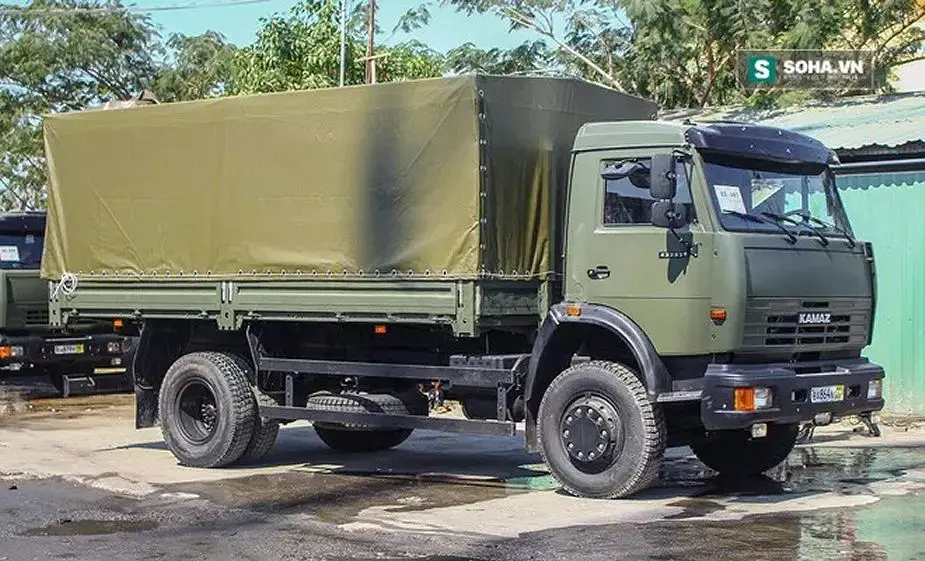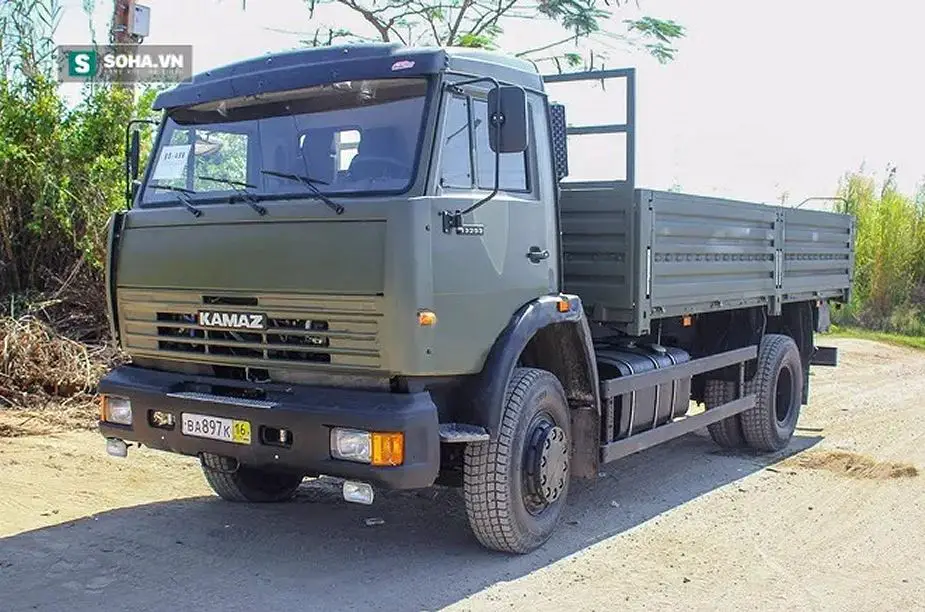Breaking news
Russia and Vietnam agreement to manufacture Kamaz & UAZ trucks.
The Russian Federation and the Socialist Republic of Vietnam have signed an agreement to collaborate on manufacturing of Russian-originated trucks and utility vehicles under license. The deal is expected to benefit from newly eased tax rules introduced by the governments of Russia and Vietnam in an effort to increase the volume of trade between the countries.

Russian-made Kamaz military truck of Vietnamese. (Picture source soha.vn)
"The inter-government protocol, signed on December 27, 2017 in Hanoi, mainly focuses on the localized production of commercial trucks but also covers specialized vehicles for military applications. Under the protocol, Russian truck manufacturers, including KAMAZ and UAZ, will be required to transfer technologies and skills to Vietnam to facilitate production and localized maintenance support," according military experrts. "The two sides will also look to penetrate export markets in Southeast Asia," they add.
In accordance with the agreement signed by Vietnam's Minister of Industry and Trade Tran Tuan Anh and Russian Ambassador to Vietnam Konstantin Vnukov, Hanoi will import both unassembled kits and drive-ready trucks from Russia. "The document says that in 2018-2022, Vietnam will allow Vietnamese-Russian joint ventures [JV] to import 2,550 completely built-up cars and 13,500 sets of auto spare parts without tariff," the People's Army Newspaper said, citing the VNA news agency. Local media did not specify the type of sets to be bought; however, they are believed to be knocked-down kits for local assembling. It is noteworthy that Russian-Vietnamese JVs will be established to handle manufacturing processes.

Russian-made Kamaz-43253 military truck of Vietnamese. (Picture source soha.vn)
"The new protocol was signed a year after KAMAZ, which has a strong presence in Vietnam, announced plans to expand in the country in a bid to meet growing demand in commercial and military markets. The company’s effort, in part, is geared towards addressing the growing influence in Vietnam of Chinese vehicle manufacturers," the specialists of IHS Jane's point out.
It is noteworthy that KAMAZ is shoring up its presence on the markets of South Asian countries including Vietnam. In February, CEO of the company Sergei Kogogin in an interview with the TASS news agency mentioned a plan to export 6,500 trucks in 2017, 4.8% more than in 2016. "In 2016, we produced 6,200 automobiles for export, and the plan for this year [2017] envisages manufacturing of 6,500 automobiles [for export]," Kogogin said at the Russian Investment Forum that was held from February 27-28, 2017 in Sochi. He also mentioned Vietnam as a primary customer for the KAMAZ trucks.
In January 2017, CEO said that 1,855 automobiles (or nearly 20% of the company's exports) had been delivered to Vietnam in 2016. He also named Cambodia and Laos as potential customers for the KAMAZ automobiles.
Therefore, the company is planning to shore up its presence on the local market. The licensed manufacturing of the KAMAZ trucks in Vietnam dates back to 2003, when joint stock company (JSC) VMIC (Vinacomin Motor Industry Joint Stock Company), a JV between KAMAZ and the state-owned Vinacomin group, was established. "KAMAZ also operates another JV in the country, [namely] Kamaz-V-Itasco Automobile that provides military maintenance and support," the analysts of IHS Jane's say. They point out that KAMAZ is believed to have delivered about 4,500 military trucks to the People's Army of Vietnam (PAVN), including KAMAZ-4326, KAMAZ-43253, KAMAZ-5350 and KAMAZ-6350 automobiles. The PAVN is known to use several types of systems (namely, artillery and command-and-control (C2) vehicles) that are based on the aforementioned KAMAZ trucks.
At present, Vietnam's military operates ZiL and Ural platforms, in particular, early variants of the Ural-4320 and the ZiL-157. While the serviceability of the Vietnamese Ural-4320s is believed to be at a relatively high level, the legacy ZiL trucks will be replaced at an early date due to their obsolescence.
© Copyright 2018 TASS. All rights reserved. This material may not be published, broadcast, rewritten or redistributed.




























